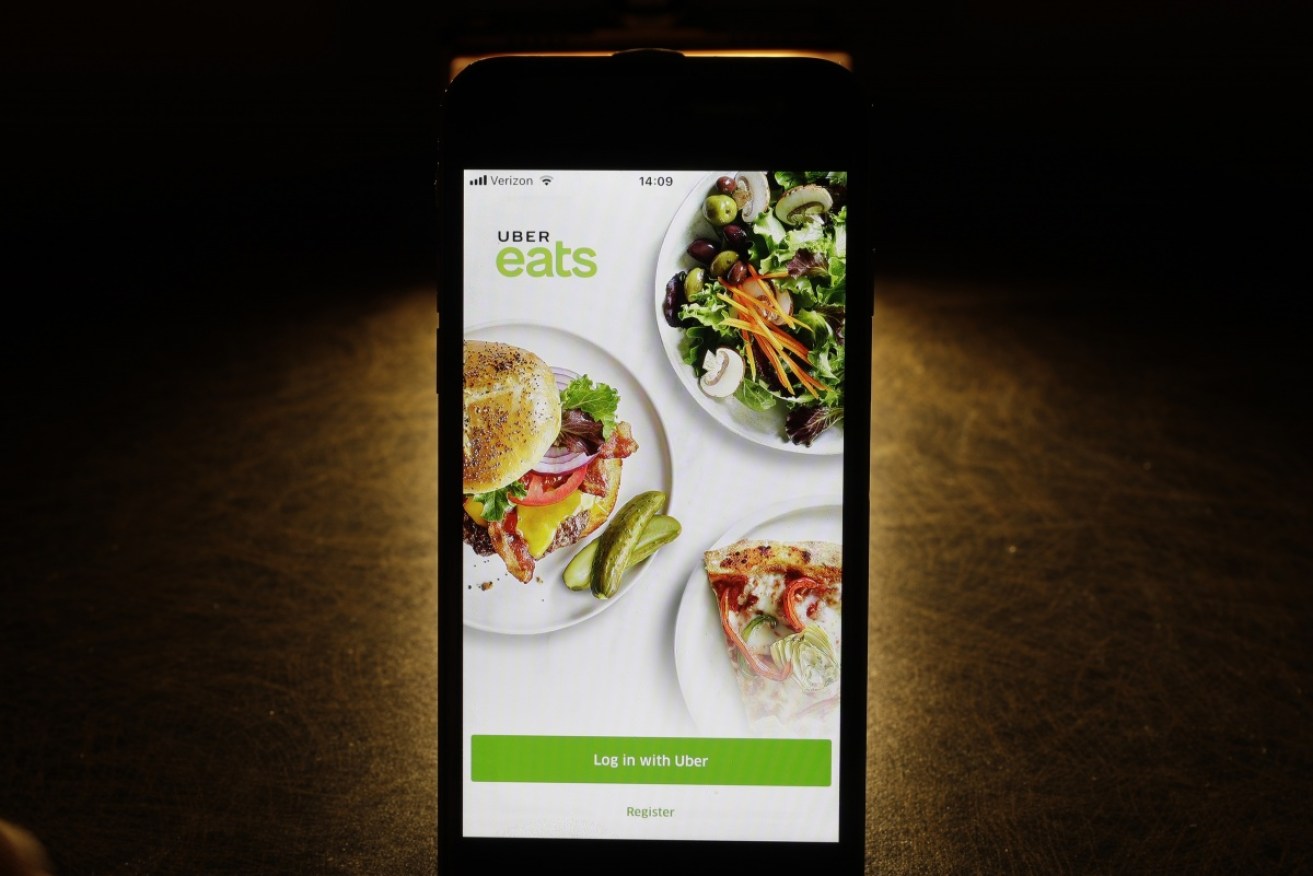Australia is becoming an Uber Eats nation


Australians are struggling to cope with planning meals to cook after the busy working day. Photo: AP
Will you be eating dinner in front of the TV tonight?
New research has found more than half of Australians are struggling to plan and cook meals – especially during the busy working week – and often order in takeaway from the comfort of their couch.
Time-poor young Australians are opting for the convenience of a takeaway TV dinner after work when choosing to dine in at home, according to a survey by Australian Beef.
But this convenience comes at a price – even without delivery fees –and can cost upwards of $4000 a year.
It also means you miss out on the health and social benefits of a home-cooked meal and time talking to friends and family around the dining room table.
Those surveyed were Australians, aged 18 to 64 years old.
They blamed long working hours, changed shopping and cooking habits, after-work social activities, and a lack of inspiration in the kitchen for abandoning cooking during the week.
Instead, 58 per cent of people are ordering in takeaway on weekday evenings, with more than half of those feasting in front of the TV.
This figure jumps to 66 per cent among young couples.
One in three (36 per cent) Australians are dining out at least once a week with one in five typically eating alone.
While most Australians do their weekly grocery shop on the weekend with the best intentions, poor planning leads to about 20 per cent of people leaving decisions about the night’s dinner until the commute home from work.
More than a quarter who claimed to occasionally cook mid-week admitted they reverted to one of six tried and tested recipes in their limited repertoire. Popular midweek dishes were meat and three veg (69 per cent), spaghetti bolognese (67 per cent) and stir-fry (64 per cent).
A growing weekly feature was the ‘taco Tuesday’, with more than half of respondents listing it as a regular weeknight meal.
However, many preferred to snack on breakfast cereal or avocado on toast if it meant not needing to get the pots and pans out after a long day and lots of dishes to clean.
Dr Fiona Martin, a psychologist and busy mum of four, said cooking together can help strengthen relationships.
“For the family, eating at the dinner table promotes health and mental wellbeing benefits – not only is it a great way to spend quality time together, but it also develops communication and social skills for children,” she said.
“For couples or friends, the act of cooking is a form of teamwork and important for promoting healthy relationships.
“Young adults are looking for quick and easy solutions to their midweek meals, which often means they stick to takeaways, order via apps or pick up ready meals from the supermarket. While it addresses their immediate need, the issue is that it may have negative implications on health and mental wellbeing for the future.”
Eating in front of the TV is “passive and anti-social” and could have a negative impact on relationships and social interaction in the long term, Dr Martin said.
Last month comparison website Finder released new research revealing that Australians are spending $2.6 billion every year on food and drink delivery apps such as Menulog, UberEats, Deliveroo and Foodora.
Takeaway sales grew by 18 per cent in just three years, according to the Australian Bureau of Statistics.
These online food delivery services are now worth 12 per cent of sales of the $44 billion cafe, restaurant and takeaway food industry, with one in three adults living in Australian capital cities claiming to be food delivery users.








